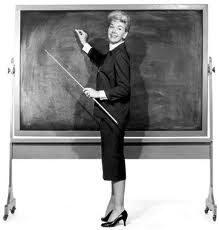Media
Teacher Qualifications vs. Teacher Effectiveness
 Teachers are an important factor affecting student performance, and teacher salaries make up the biggest chunk of public school spending. So ensuring that the best teachers instruct our kids should be a priority.
Teachers are an important factor affecting student performance, and teacher salaries make up the biggest chunk of public school spending. So ensuring that the best teachers instruct our kids should be a priority.
But the main way America assesses teacher effectiveness—educational credentials—turns out to have no bearing on how students do. Following 34 similar studies, researchers in the latest effort followed elementary students in Florida over several years and matched them to individual teachers, while tracking the amount and type of college training those teachers gained from a public Florida university. The findings:
As with most previous research, we found no relationship between a teacher’s earning a master’s degree, certification or years of experience and the teacher’s classroom performance as measured by student test scores. Though we found that some pedagogy course work was related to teaching effectiveness, the magnitude of the effect was mild: even very detailed information about the teacher’s preparation in college told us very little about how effective that teacher would be in the classroom.
So not only are educational credentials of little use in identifying effective teachers, the tenure system that Pennsylvania and much of the country relies on is unhelpful too. Teachers ought to be rigorously evaluated once they’re already in the school system (and not just to enter it), and we shouldn’t assume they’re better just because they’ve gained seniority.